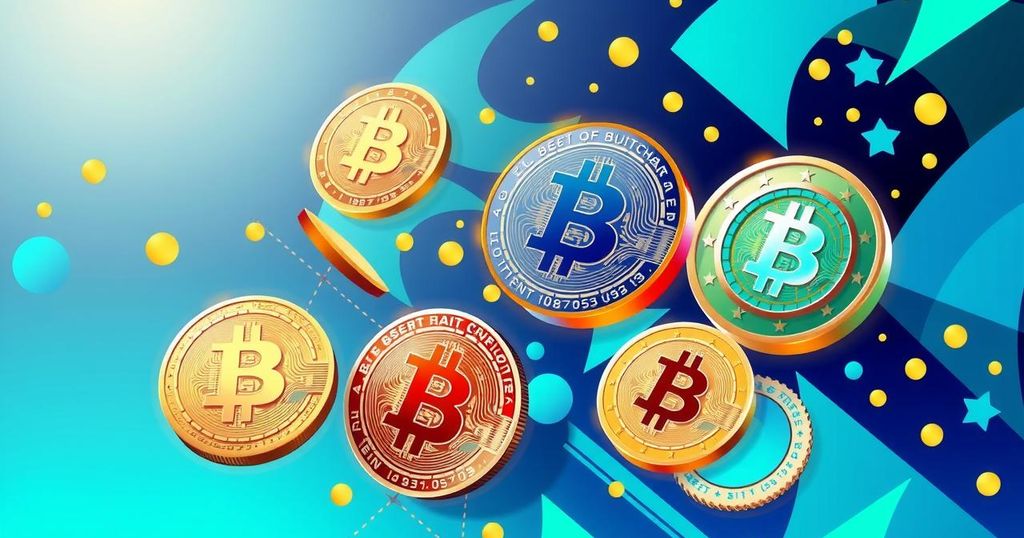Legal stuff
Market
CHAINALYSIS, CIC DIGITAL LLC, COMMISSION, CORPORATION FINANCE, CRYPTOCURRENCY, DIVISION, DIVISION OF CORPORATION FINANCE, FIGHT FIGHT FIGHT LLC, FINANCE, GARY GENSLER, MARK T. UYEDA, MARKET TRENDS, MELANIA TRUMP, REUTERS, ROLLING STONE, S. REGULATORY INTEGRITY, SEC, TRUMP, TRUMP ORGANIZATION, U. S. SECURITIES AND EXCHANGE COMMISSION, WORLD LIBERTY FINANCIAL
Nikita Petrov
0 Comments
Ethical Implications of Trump’s Meme Coins Amid SEC Regulatory Changes
The SEC’s 2025 statement classified most meme coins as collectibles, signalling a regulatory shift from stricter enforcement under past leadership. This change coincides with controversies surrounding Trump family ventures into cryptocurrency, particularly the launch of $TRUMP and $MELANIA tokens. Ethical and national security concerns arise as the former president’s financial interests in crypto may conflict with governance responsibilities, drawing scrutiny from lawmakers and experts. Overall, the intertwining of politics and crypto raises critical questions about market integrity and public trust.
On February 27, 2025, the U.S. Securities and Exchange Commission (SEC) expressed that most meme coins are not classified as securities, likening them to collectibles, with value stemming from social sentiment rather than profit expectations. This stance marks a shift from the aggressive regulatory approach of former SEC Chair Gary Gensler, perceived by some as overreach. Under Acting Chair Mark T. Uyeda, in anticipation of Trump appointee Paul Atkins, the SEC is moving towards a more market-friendly regulatory framework.
The SEC’s new guidance represents progress for the crypto industry but raises significant legal and ethical concerns, especially following the launch of Trump-related meme coins, $TRUMP and $MELANIA, by World Liberty Financial. Generated by President Trump and marketed as community support tokens rather than investments, these coins attracted a substantial initial market response, yielding $6.6 billion in profits for early buyers, while other traders encountered losses amounting to $2 billion, as indicated by Chainalysis data.
CIC Digital LLC, the entity behind these tokens, retains control over 80% of their supply, allowing Trump-linked businesses to potentially gain around $8 billion in a weekend. This highlights a growing interest from the Trump family in the cryptocurrency sector, with ventures including NFTs, a stablecoin, and Bitcoin mining, now valuing close to $1 billion despite market volatility.
The SEC’s recent approach could implicitly shield such projects unless they entail profit guarantees or managerial ties. However, this raises ethical dilemmas, particularly regarding a sitting president’s involvement in speculative assets amidst a regulatory reversal from the previous administration. Such a scenario raises concerns about conflicts of interest, as governance purposes differ fundamentally from business objectives.
Ethics experts and watchdogs have expressed concern over the implications surrounding the Trump meme coins. Critically, Danielle Brian from the Project on Government Oversight noted these tokens exemplify a financial conflict of interest, also stressing potential national security risks. Trump’s arrangement of managing interests through a trust does not effectively remove the potential for indirect benefits or exerting influence over the crypto industry.
Legislative voices, such as Representative Maxine Waters and Congressman Sam Liccardo, have highlighted concerns over security and regulatory integrity, suggesting actions like the MEME Act to prevent federal involvement in digital assets by officials and their families. There are practical risks, given the nature of crypto trading, which can evade basic KYC and AML norms, allowing foreign parties to exploit these tokens for influence.
Some sector proponents defend the Trump tokens as innovative. Paul Howard from Wincent labelled the project a game-changer; however, discontent grows among tech supporters regarding perceived exploitation of voting for personal gain. Critics assert that government should not play favourites in the market, aligning with a broader concern that such entanglements undermine public trust and free enterprise.
This situation underscores a conflict where legal clarity could lead to ethical confusion. The SEC’s guidance is beneficial for participants but raises questions of ownership concentration and the true purpose of these tokens. The appearance of regulatory approval could mislead the public about the legitimacy of these coins underpinned by their ties to the presidency.
The April 17, 2025, unlocking of $TRUMP tokens is a pivotal moment reflecting the intersection of regulatory ambiguity and political motives in the crypto sphere. Financial governance traditionally encompasses public trust, but the emerging landscape of digital assets intertwined with political issues is eroding this foundation. Forward-thinking discussions concerning political influence on market speculation are imperative as crypto continues to gain traction in public life.




Post Comment